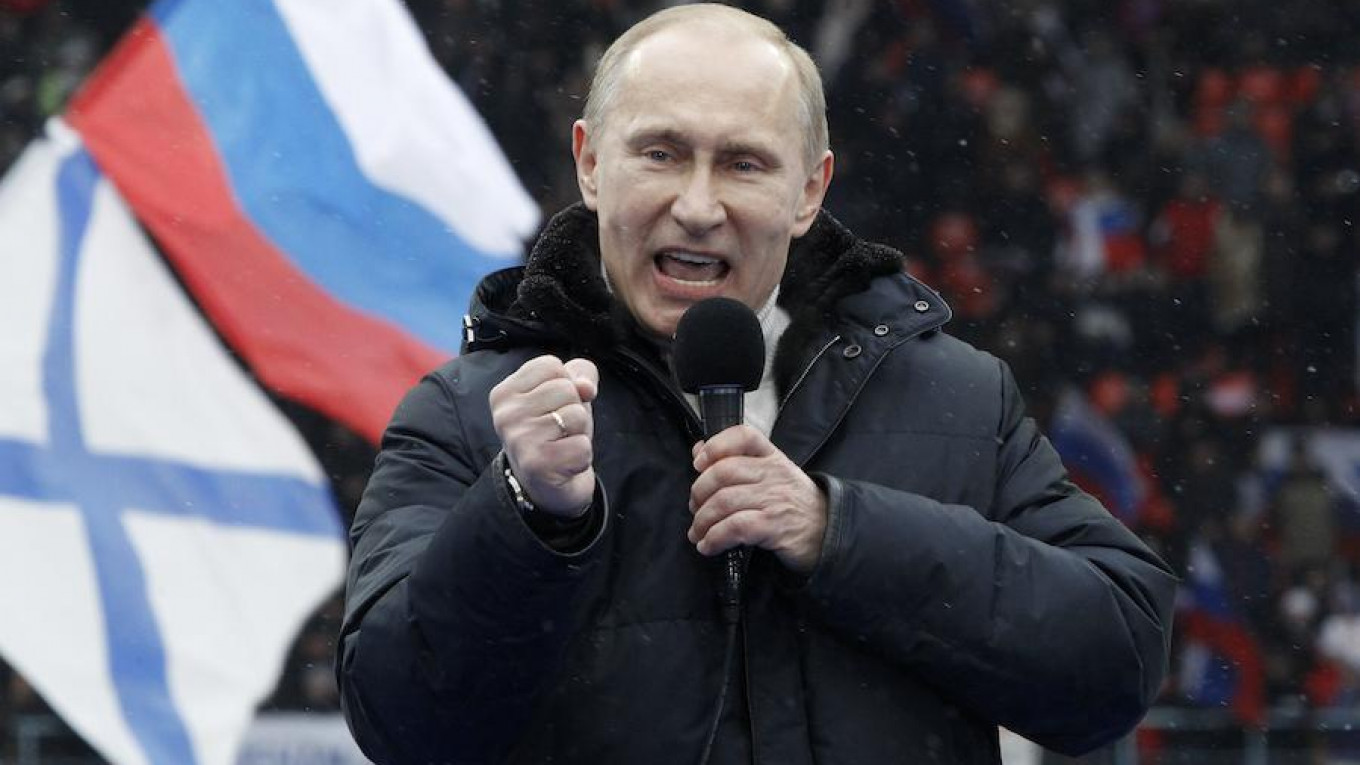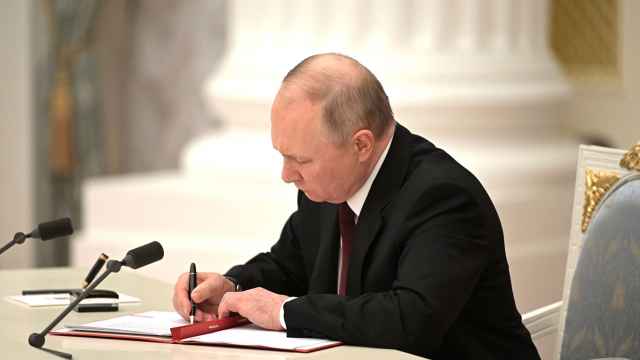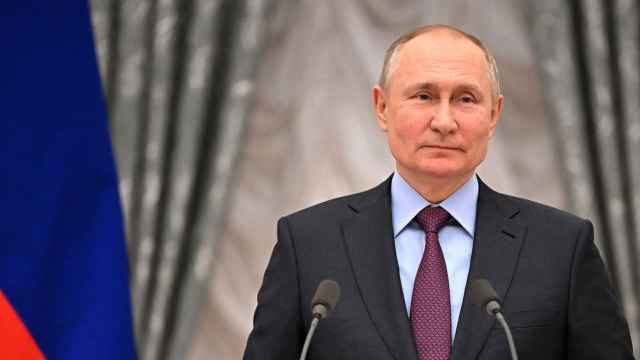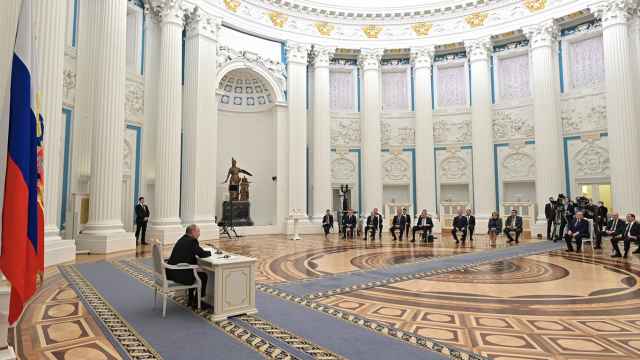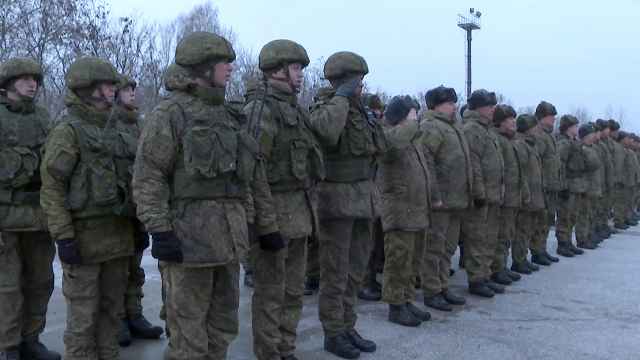Late in 2016, things did not look so rosy for Vladimir Putin. The Russian economy was in decline, the country was isolated on the global stage, and the president was a figure shunned by Western nations. Some commentators even began to entertain the possibility that Putin would use the opportunity to exit the political scene.
Since then, the unexpected election of Donald Trump has punched holes in the anti-Putin front.
“With Trump as a potential powerful ally, Putin is a kind of half-emperor of the world,” says political analyst Gleb Pavlovsky. “His re-election now has a global aspect.”
For Russia’s elite, the election picture is, finally, clear: Putin is running, and he will be in office until at least the time of the next elections in 2024.
“It would be good if Vladimir Putin comes out with his vision by next December – what the nation will look like politically and economically by 2024,” a senior Russian official said on Tuesday, Feb. 14.
This election will be one of continuity and no change. There will be no new challengers. Russia’s most prominent opposition figure Alexei Navalny announced he would battle Putin for the presidency last December. But in an accelerated and disputed court case earlier this month, he was sentenced to five-years probation. From the Kremlin’s perspective at least, he is barred from running.
Instead, Putin will face a manufactured opposition, consisting exclusively of members of the old guard. The RBC newspaper has reported that parliamentary party leaders Gennady Zyuganov, Vladimir Zhirinovsky and Sergei Mironov will all run. All three follow the Kremlin’s lead and agenda. Grigory Yavlinsky, the long-time leader of centrist opposition Yabloko party, also announced that he would run.
Every one of these candidates has run more than twice. 2018 will be Zhirinovsky’s sixth presidential election.
Search for the Enemy
At first glance, the 2018 election should present little challenge to the sitting president. The street protests and dissent that characterised his last presidential election in 2012 are a distant memory. The nation is seemingly coming to terms with Putin’s everlasting rule. Without competition or obvious alternatives, Putin’s approval rating remain at record-highs.
Yet there are some signs this election may not be as straightforward as the Kremlin expects. The challenge is avoiding boredom. The faces are the same. The conclusion is foregone. There is no drama, no fight, and, consequently, no reason to go out and vote.
Putin cannot allow this, says political analyst Nikolai Petrov. “The nature of his rule has changed, and even 70 percent of the vote at 70 percent turnout will not be enough,” he says, referring to the legitimacy benchmark reportedly set by the Kremlin.
Five years ago, on Feb. 23, 2012, Vladimir Putin addressed tens of thousands of his supporters at Moscow’s largest stadium Luzhniki. There, he recited lines from Borodino, a famous poem by 19th century writer Mikhail Lermontov that every Russian knows by heart.
“Is Moscow not behind us? / By Moscow then we die,” he screamed. “The battle for Russia is not over!”
In 2013, Putin identified the enemy as Russia’s big city middle class, unhappy as it was with his return to the presidency. In 2018, he will also need to defeat an “unexpected adversary,” says Pavlovsky.
Only this time around, finding one won’t be so easy.
Putin’s Dilemma
At this stage of his rule, Putin faces a dilemma, says Petrov. He can either move further ahead to full scale authoritarianism, or start liberal political and economic reforms. Moving in any direction will be difficult.
Former Finance Minister Alexei Kudrin and his associates are now formulating Putin’s new economic program. Kudrin has pulled few punches in his recent statements regarding the Russian economy. The first draft of his program might be ambitious.
But few establishment voices expect Putin to change the system. “Some of Putin’s ideas at this campaign may look fresh, and he might even use the term ‘reforms’ but there will be no break with the past,” the Russian economist and former government official Evgeny Gontmakher told The Moscow Times.
Putin’s forthcoming presidential campaign will instead be aimed at maintaining the status quo.
“Russian business has a stake in Putin’s new presidential term. We are not expecting new slogans and we do not want them to change,” Alexander Shokhin, the head of Russian Union of Industrialists and Entrepreneurs, the biggest Russian business lobbying body, said in an a recent interview with state television.
Government officials are equally phlegmatic about the potential for dramatic changes.
“Live for today — that’s our window of opportunity,” one senior official told the Moscow Times.
A Message from The Moscow Times:
Dear readers,
We are facing unprecedented challenges. Russia's Prosecutor General's Office has designated The Moscow Times as an "undesirable" organization, criminalizing our work and putting our staff at risk of prosecution. This follows our earlier unjust labeling as a "foreign agent."
These actions are direct attempts to silence independent journalism in Russia. The authorities claim our work "discredits the decisions of the Russian leadership." We see things differently: we strive to provide accurate, unbiased reporting on Russia.
We, the journalists of The Moscow Times, refuse to be silenced. But to continue our work, we need your help.
Your support, no matter how small, makes a world of difference. If you can, please support us monthly starting from just $2. It's quick to set up, and every contribution makes a significant impact.
By supporting The Moscow Times, you're defending open, independent journalism in the face of repression. Thank you for standing with us.
Remind me later.



